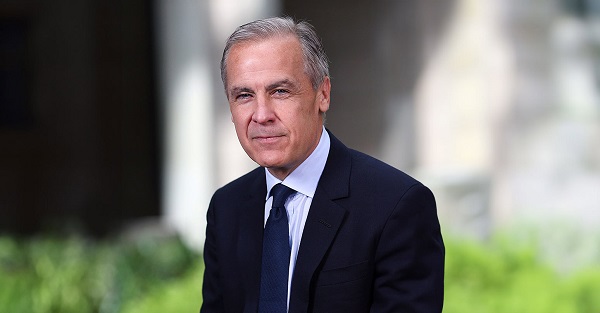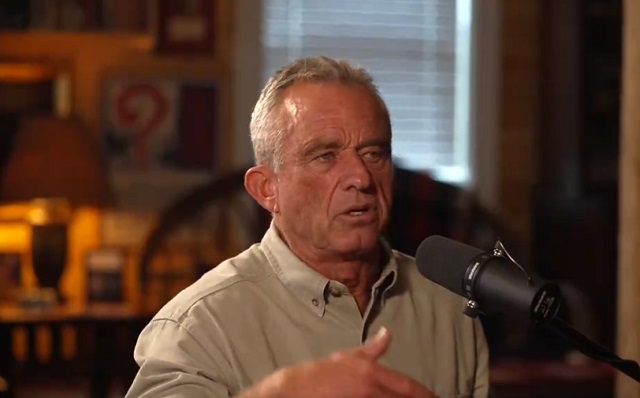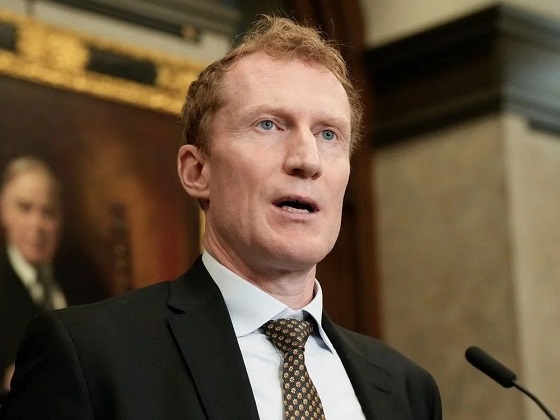National
Bill 96: Quebec public servants now required to make ‘exemplary’ use of French
People take part in a protest against Bill 96 in Montreal, Thursday, May 26, 2022. Quebec’s language law reform is continuing to draw criticism and legal challenges from the province’s English community, a year after it was adopted, as more of its provisions come into effect. THE CANADIAN PRESS/Graham Hughes
By Jacob Serebrin in Montreal
Quebec’s language law reform is continuing to draw criticism and legal challenges from the province’s English community as more of its provisions come into effect Thursday, exactly a year after it received royal assent.
While many elements of the law, commonly known as Bill 96, took effect shortly after it was passed, others were delayed. Those include restrictions on communications with the provincial government in languages other than French, French-language requirements for certain contracts and a requirement that small businesses tell the government how many of their employees don’t speak French.
The Quebec government has described the law as a moderate response to what it says is the declining use of French in the province, particularly in Montreal. Quebec Premier François Legault has repeatedly said that French will always be under threat in North America and he wants to avoid Quebec becoming like Louisiana, where few people speak French despite the state’s French history.
But Eva Ludvig, president of the Quebec Community Groups Network, said the changes taking effect Thursday — and others to follow — will make life harder for English-speaking Quebecers. “We are now seeing the impact of a bad bill, a draconian bill,” she said in an interview. “We see what this really means and the impact it will have on the day-to-day lives of business people, of everyday workers, of students.”
Here are three of the main changes coming into effect:
Civil service to use French “in an exemplary manner”
Chantal Bouchard, spokeswoman for the watchdog that enforces the province’s language laws, says this change means that when on the job, civil servants “must speak and write exclusively in French, except in certain cases.” The rule will not affect access to health care and social services in English, Bouchard said.
In a directive to government agencies, the province’s French Language Department said other exceptions include situations where health, public safety or principles of natural justice require the use of languages other than French.
“We won’t leave anyone in danger,” Jean-François Roberge, Quebec’s Minister of the French Language, told reporters in Quebec City, Wednesday, adding that 911 services will still be available in English.
There are also exceptions for Indigenous people, those who communicated with the government in English before the bill was tabled in May 2021 and people who have the right to English-language schooling in Quebec. Immigrants can also be served in another language, but only for the first six months they live in Quebec.
Roberge said the government will rely on people’s “good faith” when they self-identify as belonging to one of the exempt groups. He said government officials will ask a few questions to establish that people are entitled to receive service in English, but they won’t be issuing anglophone identity cards.
Also starting Thursday, Quebec government websites with English-language content will display banners informing people that the content is only intended for people eligible to receive government communications in English.
Small businesses must report how many employees can’t communicate in French
This requirement applies to businesses with between five and 49 employees, and the data will be made public by the province’s corporate registry.
François Vincent, Quebec vice-president of the Canadian Federation of Independent Business, said the requirement will mean more paperwork for small business owners at a time when they’re already facing a labour shortage.
“I think it will be important for the government to be flexible,” he said. “They should help and support the businesses to get the information the government needs without giving fines.”
Other provisions intended to increase the use of French in small businesses and further restrict the use of languages other than French on signs go into effect in June 2025.
Contracts of adhesion must be presented in French to both parties
These are standard contracts drawn up by one of the parties, such as employment contracts, collective agreements, insurance policies, franchise agreements and telephone service contracts.
As long as a French copy has been presented, people can then decide to request the contract in another language.
Vincent said this measure will cost his members more if they have to prepare two copies of the same contract and pay for translation.
Other changes related to the law — including French-language requirements for students in the province’s English junior colleges — come into effect this fall.
The law faces several legal challenges, including one filed at the Montreal courthouse on Wednesday.
That suit, brought on behalf of six English-speaking Quebecers who say they already struggle to get government services in English and worry the situation will deteriorate as more elements of Bill 96 come into effect, seeks to have many aspects of the bill struck down.
“On the first of June, a lot will change,” said Andrew Caddell, president of the Task Force on Linguistic Policy, the organization that brought the suit, and one of the six plaintiffs.
Caddell told reporters he worries the law’s far-reaching impacts will make English-speaking Quebecers second-class citizens. “We can protect a language and community without eliminating the rights of another,” he said.
This report by The Canadian Press was first published June 1, 2023.
Dan McTeague
Mark Carney would be bad for Canada

Carney is a champion of ESG, and the founder and co-chair of the Glasgow Financial Alliance for Net Zero (GFANZ,) which seeks to harness the might of global finance to bring about a Net-Zero global economy
Whether Carney will actually throw his hat in the ring is hard to predict. He did announce that he will “be considering this decision closely with my family over the coming few days.” But his years-long flirtation with electoral politics suggests that Carney is politically ambitious. And in the tradition of the politically ambitious, he’s lining up his constituents. At this very moment he’s busy making calls, and promises, to Liberal MPs looking for their support. Over the next several days we will hear an unending stream of praise for Carney, that he’s a ‘breath of fresh air,’ that he’s ‘just what Canada needs,’ and on and on.
Well don’t you believe it. Because one thing is for certain — Canada does not need another uber-elite, WEF hobnobbing, Green Agenda-pushing leader at the helm of any political party.
Let’s not forget who Carney is.
The former Governor of the Banks of Canada and England, Carney currently runs the megafirm Brookfield, whose offices he recently moved from Canada to the U.S., and serves as the UN Special Envoy for Climate Leadership and Finance.
Rich, established, and part of the green elite: that is Mark Carney.
I warned about Carney during the Covid-19 pandemic in 2020 when he — along with climate activist and Trudeau-whisperer Gerald Butts — was pushing hard for what he called a ‘green recovery.’ At the time Carney was framing the economic and health crisis as an opportunity to ‘leapfrog’ into a new economy. Four years later and we have all experienced first hand the real meaning of this utopian green vision — soaring energy costs which have made it harder to heat our homes, gas up our cars and buy groceries.
Conservatives call him “Carbon Tax Carney,” a nickname which his apologists have started to say is unfair, since after years of championing the Carbon Tax, he has recently distanced himself from it.
Well, of course he has! Support for the Carbon Tax has cratered across the country, and Carney is just one of many long-time supporters jumping ship in the hope that their reputation — and their wider agenda — doesn’t get sucked down with it.
Carney has been, and continues to be, a carnival barker for interventionist policies and regulation to control carbon emissions. When it comes to action on the environment and the economy Carney is of the “just do what we smart people say” school. He constantly talks of an impending climate crisis, and supports his alarmist fellow travellers like climate doomster Greta Thunberg, whom he has praised for her “many positive contributions.”
Carney has persistently advocated for strict controls on corporate governance to direct support — that is, money — towards his favored fuels and technologies. In fact, his apparent “about face” on the Carbon Tax (he said it “served a purpose up until now”) came about in the context of his Senate testimony in favor of Bill S-243, the “Climate-Aligned Finance Act,” which seeks to make it nearly impossible for banks to invest in, or loan money to, oil and gas projects in Canada, and tries to force financial institutions to appoint board members ideologically opposed to hydrocarbon energy.
Carney is a champion of ESG, and the founder and co-chair of the Glasgow Financial Alliance for Net Zero (GFANZ,) which seeks to harness the might of global finance to bring about a Net-Zero global economy. After a lot of initial excitement and acclaim (at least from the Davos-brigade), GFANZ has had trouble coping with the difficult economic times which Carney’s preferred policies have contributed to bringing about, not to mention the potential for antitrust litigation from the U.S. Department of Justice, which seems increasingly likely. Some of the group’s biggest members — Morgan Stanley, Goldman Sachs, CitiGroup, Bank of America, and Wells Fargo — have dropped out of the alliance just in the past month.
That might mean that GFANZ is not long for this world, but even so it should remain as a black mark on Carney’s résumé. It demonstrates that his economic instincts, whichsome are praising, are always towards more control, by the likes of him, over how the rest of us live our lives. And its downfall likely foreshadows what a Prime Minister Carney would do to Canada’s economy.
On energy and the environment, Carney is Trudeau with Wall Street and central bank experience: a green ideologue, but a more sophisticated one.
Canadians are fed up with green ideologues, polished or otherwise. Their ideas undermine our economic well-being, by making energy a lot more expensive. Ultimately, a Liberal Party under Mark Carney’s leadership would represent more of the same green grifting policies we saw under Justin Trudeau.
Dan McTeague is President of Canadians for Affordable Energy.

Support Dan’s Work to Keep Canadian Energy Affordable!
Canadians for Affordable Energy is run by Dan McTeague, former MP and founder of Gas Wizard. We stand up and fight for more affordable energy.
Alberta
Jasper rebuilding delayed as province waits for federal and local government approvals

From Jason Nixon, MLA for Rimbey-Rocky Mountain House-Sundre and Alberta’s Minister of Seniors, Community and Social Services on X
Alberta’s government immediately took action to support those who lost their homes in the Jasper wildfire. We were on track to deliver 250 homes, but Alberta cannot do this without land. It’s been radio silence from Ottawa since Premier Danielle Smith sent a letter to the Prime Minister nearly a month ago. Read my full statement
-

 Dan McTeague8 hours ago
Dan McTeague8 hours agoMark Carney would be bad for Canada
-

 Business10 hours ago
Business10 hours agoESG Is Collapsing And Net Zero Is Going With It
-

 Censorship Industrial Complex9 hours ago
Censorship Industrial Complex9 hours agoMark Zuckerberg Tells Joe Rogan That Biden Admin Would ‘Scream’ And ‘Curse’ At Meta Employees To Censor ‘True’ Content
-

 Brownstone Institute1 day ago
Brownstone Institute1 day agoIt’s Time to Retire ‘Misinformation’
-

 Addictions2 days ago
Addictions2 days agoAnnual cannabis survey reveals many positive trends — and some concerning ones
-

 Artificial Intelligence17 hours ago
Artificial Intelligence17 hours agoDeath of an Open A.I. Whistleblower
-

 Brownstone Institute2 days ago
Brownstone Institute2 days agoThe Cure for Vaccine Skepticism
-

 Business18 hours ago
Business18 hours agoDonald Trump appoints Mel Gibson, Sylvester Stallone as special ambassadors to Hollywood






